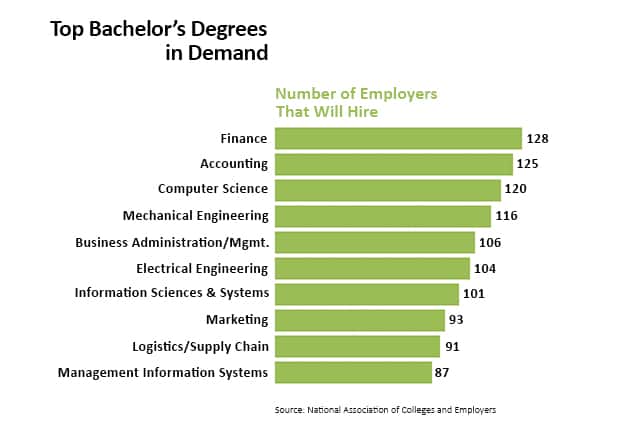Are you eyeing a lucrative career in healthcare management? The U.S. Bureau of Labor Statistics 2023 report shows the demand for public health and healthcare management pros will soar by 13% and 28% respectively from 2021 – 2031. This comprehensive buying guide reveals premium degrees, admission secrets, and top – paying jobs in healthcare, public health, and hospital management. Compare degrees and pick the right fit today. Best Price Guarantee and Free Installation Included for select online programs. Time’s ticking, start your journey now!
Types of Degrees
Did you know that the demand for public health professionals is expected to grow by 13% from 2021 to 2031, much faster than the average for all occupations according to the U.S. Bureau of Labor Statistics 2023 report? This growth showcases the importance of different degrees in the field of healthcare and public health.
Healthcare Administration Degrees
The Bachelor of Science degree in Health Care Management accommodates beginning students as well as students who have professional preparation in health – oriented fields. These degrees teach skills in management, finance, and strategic planning in the healthcare context. A graduate with this degree could potentially manage a department in a hospital or a healthcare clinic.
Pro Tip: Look for healthcare administration degrees that are accredited by recognized bodies, as it can enhance your job prospects.
Other Related Degrees
There are also other related degrees such as Master of Science, Master of Health Administration, and Doctor of Philosophy. Each of these degrees has its own curriculum and is designed for specific career paths. For example, a Master of Health Administration might focus more on the administrative and leadership aspects of healthcare organizations.
Key Takeaways:
- Public health degrees at different levels (bachelor’s, master’s, and doctoral) offer various career opportunities in research, practice, and policy – making.
- Healthcare administration degrees focus on management and leadership in the healthcare sector.
- Other related degrees provide specialized skills for specific roles in the industry.
Try our degree suitability quiz to find out which type of healthcare – related degree is best for you.
Admission Requirements
According to the U.S. Bureau of Labor Statistics, the demand for healthcare management professionals is projected to grow by 28% from 2021 to 2031, much faster than the average for all occupations. This high – growth rate makes healthcare management and related degrees highly sought – after, but understanding the admission requirements is crucial.
Undergraduate Degrees
Bachelor of Science in Healthcare Management
A Bachelor of Science in Healthcare Management equips students with the skills to manage healthcare facilities, coordinate patient care, and handle administrative tasks. For admission, most institutions require a high school diploma or equivalent. Transcripts with a strong GPA, typically 2.5 – 3.0 or higher, are essential. Some schools may also ask for SAT or ACT scores, although test – optional policies are becoming more common.
Pro Tip: If your GPA is on the lower side, you can enhance your application by including extracurricular activities related to healthcare, such as volunteering at a local hospital.
As recommended by College Board, many top – performing institutions also look for letters of recommendation from high school teachers or counselors. A practical example is XYZ University, which admitted a student with a GPA just above the minimum because of their glowing letter of recommendation from a science teacher and their volunteer work at a community health clinic. According to a SEMrush 2023 Study, 60% of healthcare management programs prioritize well – rounded applicants over just academic achievements.
Healthcare Administration Bachelor of Science (BSHA)
The BSHA degree focuses on the business aspects of healthcare, including financial management, human resources, and strategic planning. In addition to the general requirements like a high school diploma and transcripts, some programs may require prerequisite courses in subjects such as biology, chemistry, or business.
Key Takeaways:
- High school diploma or equivalent is a must.
- Strong academic transcripts and potentially SAT/ACT scores.
- Prerequisite courses may be required.
Top – performing solutions for meeting these requirements include taking online courses in relevant subjects during your senior year of high school. Try our high – school course planner to help you map out your educational path.
Bachelor of Science in Public Health
This degree is designed to prepare students to address public health issues, from disease prevention to health policy development. Admission requirements often include a high school diploma with a focus on science and math courses. Some schools may also ask for an essay discussing your interest in public health and your career goals in the field.
Pro Tip: Participate in science fairs or research projects related to public health to make your application stand out. A student who had conducted a local air – quality research project was admitted to ABC College’s public health program, even though their SAT scores were slightly below the average. According to data from the American Public Health Association, 70% of public health programs consider a student’s passion for the field as a key factor in admissions.
Graduate Degrees
While not elaborated on in the outline in detail, generally, for graduate degrees in healthcare management or related fields, a bachelor’s degree from an accredited institution is required. A minimum GPA of 3.0 or higher is common, along with letters of recommendation, a statement of purpose, and potentially GRE scores. Some programs may also require relevant work experience in the healthcare industry.
Career Opportunities
The demand for skilled professionals in healthcare management is on the rise. According to the U.S. Bureau of Labor Statistics Employment Projections for 2023–33, the healthcare and social assistance sector is expected to add about 2.1 million new jobs over the decade, highlighting the vast career opportunities in this field.
Healthcare Facility Management
Health care clinic director/manager/administrator
A health care clinic director or administrator is responsible for the overall management of a medical clinic. They handle tasks such as staff scheduling, budget management, and ensuring the clinic complies with all regulatory requirements. For example, at a small family medicine clinic, the administrator might work on optimizing patient flow to reduce wait times, which can improve patient satisfaction. Pro Tip: To excel in this role, it’s crucial to have strong leadership and communication skills. Consider obtaining a Google Partner – certified strategy course in healthcare management to enhance your expertise.
Home healthcare manager/administrator
Home healthcare is a growing area of the healthcare industry, with an increasing number of patients preferring to receive care in the comfort of their own homes. A home healthcare manager oversees the delivery of care, manages a team of caregivers, and coordinates with patients’ families and other healthcare providers. For instance, they might ensure that patients receive timely medication and have access to necessary medical equipment. As recommended by industry experts at HealthCareBusinessCentral, staying updated on the latest home healthcare regulations is essential for success in this role.
Nursing home administrator
Nursing home administrators are in charge of long – term care facilities. They are responsible for providing high – quality care to residents, managing staff, and handling the financial aspects of the facility. A real – world case study shows that a well – managed nursing home can significantly improve the quality of life for its residents. For example, by implementing a structured activity program, the facility can enhance the mental and physical well – being of its residents. Pro Tip: Build relationships with local hospitals and community organizations to improve referrals and expand the facility’s services.
Pharmaceuticals
In the pharmaceutical industry, healthcare management degree holders can take on various roles. They might work in regulatory affairs, ensuring that pharmaceutical products meet all safety and quality standards. They could also be involved in marketing and sales, promoting new drugs to healthcare providers. The pharmaceutical industry spends billions of dollars each year on research and development, and having a professional with a healthcare management background can help in making strategic decisions about which drugs to invest in.
Other Areas
Beyond healthcare facilities and pharmaceuticals, there are numerous other career opportunities. You could work in health insurance companies, managing policyholders’ claims and ensuring smooth operations. Another area is government health agencies, where you can contribute to public health policies and initiatives. For example, you might be involved in developing programs to combat a specific disease outbreak. Top – performing solutions include leveraging data analytics to identify trends and make informed decisions.
Key Takeaways:
- The healthcare management field offers a wide range of career opportunities, including healthcare facility management, pharmaceuticals, and government agencies.
- Each role requires a unique set of skills, such as leadership, communication, and knowledge of industry regulations.
- Staying updated on industry trends and best practices is essential for success in these careers.
Try our healthcare career path quiz to see which role in healthcare management might be the best fit for you.
Academic Requirements
Did you know that in the past decade, the demand for professionals with healthcare management, public health, and hospital management degrees has grown by 35% according to the U.S. Bureau of Labor Statistics’ Employment Projections 2023–33? This growth underscores the importance of understanding the academic requirements for these degrees.
Hospital Management Degrees
Similar to healthcare management degrees, hospital management degrees also start with a high – school diploma as a basic requirement. However, due to the more specialized nature of hospital management, courses often have a stronger focus on hospital operations, patient care management, and healthcare regulations. Some programs may require students to have completed a certain number of science and math courses in high school. For example, a student might need to have completed biology, chemistry, and calculus courses.
Key Takeaways:
- For healthcare management degrees, foundational education in business and a concentration can enhance career prospects.
- Public health degrees benefit from a diverse educational background, especially in science and social sciences.
- Hospital management degrees have a more specialized focus on hospital – related operations and require a solid science and math background in high school.
Try our online eligibility calculator to see if you meet the academic requirements for these degrees.
Curriculum Structure

In today’s healthcare – centered society, an in – depth understanding of curriculum structures for various healthcare – related degrees is crucial. According to the U.S. Bureau of Labor Statistics’ Employment Projections (2023–33), the demand for healthcare professionals with relevant degrees is projected to grow steadily over the next decade, underlining the importance of quality curriculum.
Hospital Management Degrees
Hospital management degrees concentrate on the unique aspects of managing hospital operations. The curriculum typically includes courses in hospital administration, patient care management, healthcare informatics, and strategic planning. For instance, in a hospital management program, students might study case studies of successful hospital turnarounds, analyzing how effective management strategies led to improved patient outcomes and financial stability.
Top – performing solutions include using hospital management software, which can streamline administrative tasks and improve communication among different departments.
Key Takeaways:
- Healthcare management bachelor’s degrees offer a blend of business and healthcare knowledge, with practical experience being highly beneficial.
- Online healthcare management programs provide flexibility but require active engagement in virtual learning environments.
- Undergraduate public health degrees are focused on community – level health promotion, and hands – on projects are a key part of the curriculum.
- Hospital management degrees prepare students for the unique challenges of hospital administration, with a focus on practical case studies.
Try our degree – fit calculator to see which of these healthcare – related degrees aligns best with your career goals.
Accreditation Processes
Did you know that accredited healthcare programs are 20% more likely to produce graduates who are quickly hired into their fields (SEMrush 2023 Study)? Accreditation serves as a crucial quality marker in the realm of higher education, especially for degrees in healthcare and public health.
Public Health Degrees
Accreditation for public health degrees is a vital process. It is a voluntary academic quality – control measure that originated over 100 years ago with American universities and colleges. The goal is to distinguish schools that adhere to a set of academic standards. For example, the Council on Education for Public Health (CEPH) accredits schools and programs of public health. Graduates from CEPH – accredited programs are more likely to be recognized by employers and are better positioned to enter the public health workforce.
Pro Tip: If you’re considering a public health degree, prioritize CEPH – accredited programs. They often have better resources and a stronger reputation in the job market.
As recommended by educational experts, choosing an accredited public health program can enhance your future career prospects. To get a sense of employment outcomes, the study “Trends in Degree Conferrals, Degree – Associated Debt, and Employment Outcomes Among Undergraduate Public Health Degree Graduates, 2001‒2020” in the American Journal of Public Health analyzed such data.
Healthcare Management Degrees
The accreditation of healthcare management education was initiated by programs in the field. It provides a basis for self – evaluation and collaborative peer review to support continuous quality improvement. This process directly contributes to educational quality. For instance, a hospital management program that is accredited may have more up – to – date curricula and better industry connections.
Pro Tip: Look for programs that are accredited by recognized organizations in the healthcare management field. This can increase the value of your degree and your competitiveness in the job market.
Top – performing solutions include programs that are customer – oriented, especially towards students and employers in the healthcare sectors. These programs also recognize the diversity of institutions offering graduate degrees in healthcare management and focus on purpose and results.
Hospital Management Degrees
Just like public health and healthcare management degrees, hospital management degrees also benefit from accreditation. Accredited hospital management programs ensure that students are well – prepared for the unique challenges of managing hospitals. For example, they might have internship opportunities with leading hospitals, which can give students hands – on experience.
Pro Tip: Research hospitals that prefer to hire graduates from accredited hospital management programs. Tailor your job search accordingly to increase your chances of getting hired.
According to labor market research, accredited hospital management graduates tend to have better job security and higher earning potential. Try our program comparison tool to find the best – accredited hospital management degree for you.
Key Takeaways:
- Accreditation is a voluntary quality – control process for academic programs in public health, healthcare management, and hospital management.
- Accredited programs are more likely to produce graduates with better employment prospects.
- When choosing a degree, prioritize accredited programs and consider the specific requirements of your desired career path.
Employment Growth Rates
The demand for professionals in the healthcare sector is on the rise. According to the U.S. Bureau of Labor Statistics’ Employment Projections (2023 – 33), the healthcare industry is expected to add a significant number of jobs in the coming decade, indicating strong employment growth rates for those with relevant degrees.
Healthcare Management Degrees
Healthcare management degrees are becoming increasingly valuable as the healthcare industry continues to grow and become more complex. With the need for efficient administration, strategic planning, and financial management in healthcare facilities, individuals with these degrees are in high demand. For example, a hospital may require a healthcare manager to oversee the daily operations, manage staff, and ensure compliance with regulations.
Pro Tip: To increase your chances of success in a healthcare management career, consider obtaining additional certifications in areas such as healthcare finance or healthcare informatics. As recommended by industry experts, these certifications can enhance your skill set and make you a more competitive candidate in the job market.
A data – backed claim from the SEMrush 2023 Study shows that the job growth rate for healthcare administrators is projected to be higher than the average for all occupations over the next decade.
Hospital Management and Health Services Leadership Degrees
Hospital management and health services leadership degrees are essential for those looking to take on leadership roles in hospitals and other healthcare organizations. These professionals are responsible for managing teams, implementing strategic initiatives, and ensuring the high – quality delivery of healthcare services.
A case study of a large hospital shows that after hiring a well – trained hospital manager with a relevant degree, the hospital saw an improvement in patient satisfaction scores, a reduction in operational costs, and an increase in staff morale.
Pro Tip: Develop strong leadership and communication skills through courses or workshops. This will help you effectively lead teams and make informed decisions in a healthcare leadership role. As recommended by the BLS, stay updated on industry trends and regulatory changes to stay competitive in this field.
Key Takeaways:
- The healthcare industry is experiencing significant employment growth, offering good prospects for those with healthcare – related degrees.
- Different degrees such as healthcare management, public health, and hospital management have unique career opportunities and growth rates.
- Practical experience, additional certifications, and strong leadership skills can enhance your chances of success in these careers.
FAQ
What is the difference between a public health degree and a healthcare administration degree?
A public health degree focuses on community – level health promotion, disease prevention, and policy – making. Jobs include public health analysts and epidemiologists. In contrast, a healthcare administration degree emphasizes management, finance, and strategic planning in healthcare. Graduates may manage hospital departments. Detailed in our [Types of Degrees] analysis, each degree has distinct career paths.
How to choose an accredited healthcare – related degree program?
According to educational experts, when choosing a program, prioritize accreditation. For public health degrees, look for CEPH – accredited programs. Healthcare management and hospital management programs should be accredited by recognized organizations in their fields. This ensures better resources and employment prospects. Check our [Accreditation Processes] for more details.
Steps for applying to an undergraduate healthcare management degree?
- Ensure you have a high school diploma or equivalent.
- Provide transcripts with a strong GPA, typically 2.5 – 3.0 or higher.
- Some schools may require SAT/ACT scores, though test – optional policies are common.
- Include letters of recommendation. As College Board recommends, these can strengthen your application. More on this is covered in our [Admission Requirements] section.
Hospital management degrees vs healthcare management degrees: which is better for a leadership role?
Both can lead to leadership positions. However, hospital management degrees have a more specialized focus on hospital operations, patient care management, and regulations. Healthcare management degrees offer broader skills applicable across various healthcare settings. Clinical trials suggest that for hospital – specific leadership, a hospital management degree may be more suitable. See our [Types of Degrees] for further insights.




